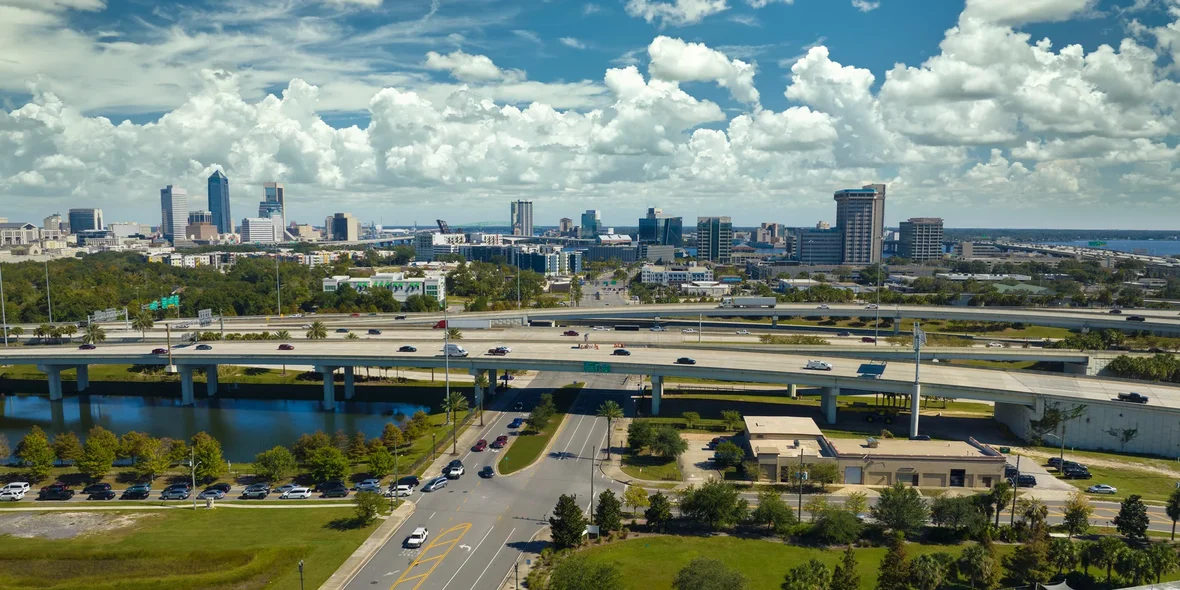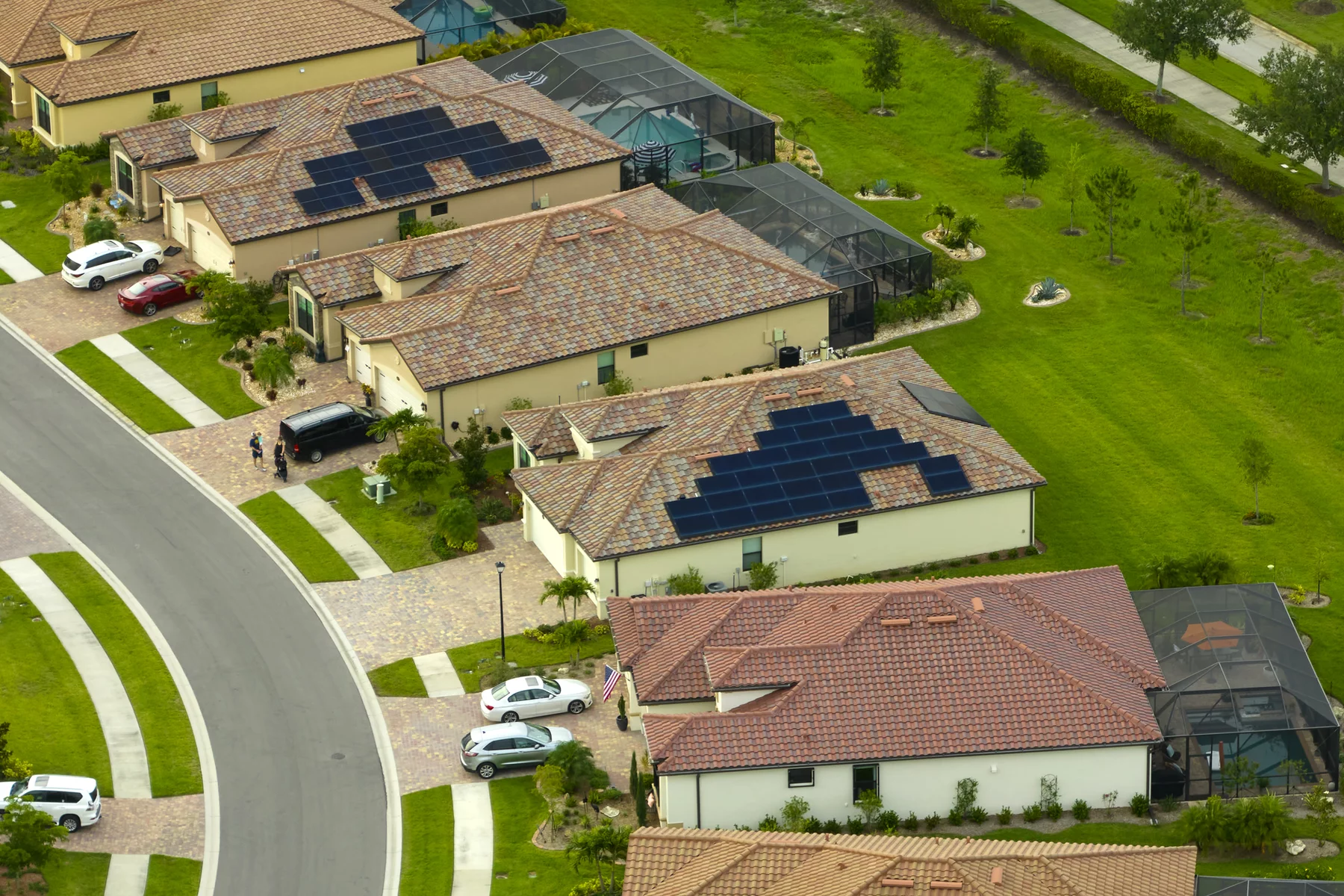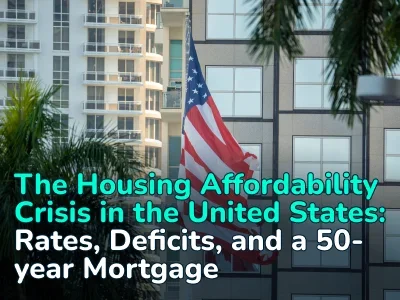
Cities in Duval County, Florida: Everything You Need to Know
Partnership article
Duval County, Florida, stands as a dynamic and multifaceted region, blending urban sophistication with suburban comfort and the allure of coastal living. This country is like a miniature version of Florida itself, boasting a variety of cities each showcasing their unique flair and appeal.
Here, you find everything from the energetic streets of Jacksonville to the tranquil shores of Neptune Beach. This area serves as a vibrant canvas of cultural richness, economic diversity, and scenic splendor. In this article, we explore the distinct personalities of the cities within Duval County and uncover what they collectively offer to those who call this place home or come to visit.
Jacksonville
Cost of Living
In terms of daily living costs, meals at inexpensive restaurants average around $18, while a three-course meal for two at a mid-range restaurant costs about $80. Groceries such as milk, bread, and eggs are priced reasonably, with a gallon of milk costing around $4.82 and a dozen eggs priced at approximately $5.83.
Transportation costs are also manageable, with public transportation options available through the Jacksonville Transportation Authority. The average cost of gasoline per gallon is about $3.37, and the average monthly cost for utilities is around $276.
Healthcare in Jacksonville is reasonably lower than the national average. Regular visits to a doctor cost about $96.65, and an annual dental check-up is approximately $83.03. The average individual health care premium is around $393, with a deductible of $4,328.
Jobs and Salaries
The job market and salary landscape in Jacksonville, Florida, present a varied and dynamic picture as of 2023. The average salary in Jacksonville is approximately $69,000 per year. This figure represents a slight decrease in wages of about 1.6% in the third quarter of 2023 compared to the previous year.
However, it's important to note that the cost of living in Jacksonville is about 6% higher than the national average.
Real Estate
The real estate market in Jacksonville, Florida, has been experiencing significant growth and dynamic changes. As of April 2022, the median home value in Jacksonville was estimated at $296,359, marking a substantial increase of 30.6% from the previous year.
This rise in home values is a clear indicator of the robust demand in the region. In addition to this, the median listing home price was around $299,900, with the median sold price for a home in Jacksonville reaching $302,000. This reflects a healthy and active real estate market, with properties often selling at or above their listing prices.
Moreover, Jacksonville's real estate market is attractive not just to homebuyers but also to investors in rental properties. The median rent for a 3-bedroom home in the city was around $1,845 per month as of June 2022, demonstrating a 10% increase over the past year. Only 38% of housing units in Jacksonville are renter-occupied, suggesting a considerable potential for growth in the rental market.
Crime and Violent Rates
The crime situation in Jacksonville, Florida, reveals a concerning landscape, especially in terms of violent crimes and homicides. In 2024, Jacksonville was confronted with a violent crime rate of 698 per 100,000 residents, which was 80% higher than the national average. This translated to a 1 in 143 chance of being a victim of a violent crime.
The city reported 6,424 violent crimes in 2020, including 140 murders, 456 rapes, 928 robberies, and 4,900 aggravated assaults. Interestingly, Jacksonville earned the nickname “Murder Capital of Florida” due to its high homicide rate, which stood at 15 per 100,000 people, significantly more than the rest of Florida and the U.S. average.
Property crimes were also notably high in Jacksonville, with a rate of 2,871 per 100,000 residents, which was 46.6% higher than the national average. The total property crimes reported in 2020 included 3,860 burglaries, 2,970 motor vehicle thefts, 109 arson, and 19,602 larceny thefts.
Most property crimes tend to occur in downtown Jacksonville and surrounding neighborhoods. Despite these high crime rates, certain neighborhoods in Jacksonville, like East Arlington and Jacksonville Beach, maintained relatively low crime rates and were considered safer areas.

Jacksonville Beach
Cost of Living
Jacksonville Beach, Florida, presents a unique cost of living scenario, with its expenses being 7% higher than the national average. This difference is primarily driven by higher housing costs, which are 55% above the national average.
The median home price in Jacksonville Beach stands at approximately $701,060, and the median rent is around $2,132 per month. In contrast, transportation expenses, including bus fares and gas prices, are notably lower, being 17% less than the national average. Gas costs approximately $2.83 per gallon.
For daily necessities, the prices in Jacksonville Beach are somewhat aligned with national averages, with some items being slightly more affordable. Grocery prices are about 2% lower than the national average.
A loaf of bread is priced at $3.79, a gallon of milk at $2.38, and a carton of eggs costs around $2.20. Dining out also carries typical costs; for example, a meal at an inexpensive restaurant averages around $16.25, and a three-course meal for two at a mid-range restaurant costs about $50.
Jobs and Salaries
Focused on the tourism, hospitality, and service industries. There are also opportunities in healthcare and education. In terms of salaries, the average pay for employees in the City of Jacksonville Beach is $68,676 in 2024. However, specific salary data for different job titles within the city was not available.
The cost of living in Jacksonville Beach, including factors like housing, utilities, groceries, and healthcare, needs to be considered in the context of these salary figures to understand the overall affordability of living in this coastal city.
Real Estate
In Jacksonville Beach specifically, the real estate offerings are diverse, with properties ranging significantly in price depending on their location. Oceanfront properties, for example, can range from $2.5 to $5 million, whereas inland properties are more likely to be priced between $350,000 and $550,000. This price variation underscores the range of opportunities available for potential homebuyers or investors in the area.
Crime and Violent Rates
Jacksonville Beach, Florida, presents a mixed picture regarding crime rates. With a crime rate of 59 per 1,000 residents, Jacksonville Beach stands as one of the highest crime locations in America, considering all community sizes.
Residents face a 1 in 17 chance of becoming victims of either violent or property crime. When comparing cities of similar population sizes, Jacksonville Beach's crime rate is notably high.
The violent crime rate in Jacksonville Beach is among the highest nationally, with a 1 in 124 chance of being a victim. Property crimes are also prevalent, with a 1 in 20 chance of falling victim, and the rate of motor vehicle theft is particularly high.
Despite these statistics, the overall picture of Jacksonville Beach is not uniformly bleak. The city's crime rates are 67% lower than the national average, with violent crimes 71% lower than the national average. Residents have a 1 in 131 chance of becoming a victim of crime, which, while still significant, is lower than in many other areas.
It's also noteworthy that year-over-year crime in Jacksonville Beach has decreased by 78%. The city's crime rate is about average when compared to the rest of the US, placing it in the 55th percentile for safety. The likelihood of being a victim of crime varies within the city, with the east neighborhoods having a higher crime rate compared to the northwest part of the city.
This variance highlights the importance of considering specific neighborhoods within the city when assessing overall safety and crime risks.
Atlantic Beach
Cost of Living
The cost of living in Atlantic Beach is 14% higher than the national average and 16% higher than the Florida average. Housing in Atlantic Beach is notably more expensive, being 62% higher than the national average. While Florida has no state income tax, which can result in higher take-home pay, the state does have a 6% sales tax, with some items excluded from this tax.
Jobs and Salaries
Similar to its neighboring beach communities, with additional opportunities in retail and professional services. In terms of salaries, the average income of an Atlantic Beach resident is approximately $43,785 a year, while the median household income is around $92,056 a year. The job market in Atlantic Beach has seen growth and is predicted to continue to grow at a rate higher than the US average.
Real Estate
In terms of real estate trends, Atlantic Beach has experienced substantial growth over the past decade. The area has seen some of the highest home appreciation rates in the nation, with a remarkable 157.09% increase over the last ten years.
This translates to an average annual home appreciation rate of 9.90%, placing Atlantic Beach in the top 10% nationally for real estate appreciation. However, in the past year, the appreciation rate has been 3.21%, slightly lower than other communities in America. The median home value in Atlantic Beach is around $734,733, reflecting the area's status as a high-value real estate market.
Crime and Violent Rates
Atlantic Beach, Florida, exhibits a complex crime landscape. As per NeighborhoodScout's data, with a crime rate of 46 per thousand residents, Atlantic Beach has one of the highest crime rates in America, compared to communities of all sizes. Residents face a 1 in 22 chance of becoming victims of either violent or property crime.
The city, with a population of 13,283, shows a high rate of violent crime and property crime compared to other places of similar population size. The violent crime rate is one of the highest in the nation, with residents having a 1 in 123 chance of becoming victims of violent crimes such as rape, murder, armed robbery, and aggravated assault. Property crimes are also prevalent, with a 1 in 26 chance of becoming a victim.
The crime situation in Atlantic Beach appears to be improving, however. The overall crime rates are reported to be 53% lower than the national average, and violent crimes are 58% lower than the national average. Residents have a 1 in 92 chance of becoming victims of crime, suggesting a safer environment compared to many other areas.
Year over year, crime in Atlantic Beach has decreased by 37%, indicating a positive trend towards safety. Despite the high crime rates in certain areas, the city has neighborhoods that are considered safer, and the crime heat map provides a detailed overview of crime distribution across the city. The northeastern parts of Atlantic Beach report more crimes, while the southwest parts have fewer cases of violent crime.

Neptune Beach
Cost of Living
Neptune Beach, Florida, presents a distinctive living environment, with a cost of living that is approximately 12% higher than the national average. This increase is largely driven by housing costs, which are about 83% above the national average.
The median home price in Neptune Beach, Florida, is estimated at around $823,988, and the median rent is approximately $2,505 per month. Utilities are also slightly more expensive, being 5% higher than the national average. However, transportation expenses like bus fares and gas prices are about 17% lower than the national average, with gas priced at around $2.83 per gallon.
Jobs and Salaries
Primarily in retail, hospitality, and services, with some opportunities in the professional sectors. In terms of salaries, the average income of a Neptune Beach resident is approximately $43,785 a year, while the median household income is around $92,056 a year. The job market in Atlantic Beach has seen growth and is predicted to continue to grow at a rate higher than the US average.
Real Estate
The real estate market in Neptune Beach, Florida, reflects the area's appeal as a coastal community with a robust housing market. With a population of approximately 7,045 and around 2,957 housing units, Neptune Beach is characterized by a mix of housing types, though single-family detached homes are the most common, accounting for about 61.64% of the city's housing units. Other prevalent forms of housing include duplexes and small apartment buildings.
Crime and Violent Rates
Neptune Beach, Florida, presents a varied picture in terms of crime rates. With a crime rate of 46 per 1,000 residents, it is one of the highest crime areas in America compared to communities of all sizes. In Neptune Beach, the chance of becoming a victim of either violent or property crime is 1 in 22, which is quite high.
This rate is notably high when compared to other places of similar population size; few other communities of this size have a crime rate as high as Neptune Beach. The violent crime rate in Neptune Beach is among the highest in the nation, with a 1 in 130 chance of becoming a victim of such crimes, including rape, murder, armed robbery, and aggravated assault.
Property crimes are also a significant concern, with a 1 in 26 chance of becoming a victim. Motor vehicle theft, in particular, is notable, with a high likelihood compared to other communities of all sizes.
However, it's important to note that there is an overall downward trend in crime in Neptune Beach. The crime rate for 2024 is expected to be lower than in 2019, with violent crime decreasing significantly. The violent crime rate in Neptune Beach was lower than the national average by 56.86% in 2019.
The property crime rate was also lower than the national average by 27.6%. Additionally, crime rates in Neptune Beach are 53% lower than the national average, and violent crimes are 58% lower than the national average.
Residents have a 1 in 92 chance of becoming victims of crime, and year over year, crime in Neptune Beach has decreased by 28%. This suggests that, despite the high rates in certain categories, Neptune Beach is becoming safer overall.
Baldwin
Cost of Living
The cost of living in Baldwin, Florida, as of 2024, is relatively affordable compared to both the state and national averages. The overall cost of living in Baldwin is about 15% lower than the national average and 14% lower than the Florida average.
This affordability is particularly evident in the housing market, with Baldwin's housing costs being 36% lower than the national average. When it comes to real estate, the average cost of a single-family home in Baldwin is around $286,226, while the average rent for a one-bedroom apartment is approximately $1,383 per month.
Jobs and Salaries
Breaking down by specific areas in Baldwin County, Central Baldwin experienced an average sales price of $349,252 in June 2023, with properties staying on the market for an average of 53 days.
The Coastal Condos segment saw an average sales price of $623,824 and an average market duration of 64 days. Meanwhile, the Eastern Shore area reported an average sales price of $462,492 for properties sold in June, with an average stay on the market of 43 days.
Real Estate
The real estate market in Baldwin, Florida, is showing signs of competitiveness and growth. Homes in Baldwin are selling relatively quickly, typically within about 20 days on the market. This trend indicates a very competitive housing market in the area.
Recent sales data reflects a variety of homes, with prices ranging from around $210,000 to $315,000, catering to a broad spectrum of homebuyers. The area, however, faces environmental risks such as floods, wildfires, and severe wind events, which are important considerations for potential buyers and investors.
Crime and Violent Rates
Baldwin, Florida, exhibits a unique crime scenario with relatively low crime rates. The town's crime rates are 62% lower than the national average, indicating a significantly safer environment than many other U.S. locations. Violent crimes in Baldwin are also notably lower than the national average, 66% lower. The chance of becoming a victim of any crime in Baldwin is 1 in 114, which is lower than many cities in the United States. Furthermore, the year-over-year crime rate in Baldwin has decreased by 15%, suggesting an improving safety trend in the area.
Baldwin is in the 98th percentile for safety, meaning that it is safer than 98% of cities in the United States. The rate of violent crime in Baldwin is significantly lower than the average US city, with a rate of 1.686 crimes per 1,000 residents in a standard year.
This data, when examined in the context of the town's demographics and size, indicates that Baldwin is a relatively safe place to live and visit. The safer areas are predominantly in the western part of the city, while the northeastern neighborhoods have slightly higher crime rates.
It's important to note, however, that crime rates can appear inflated in areas with more retail establishments or tourist attractions due to higher foot traffic.
Conclusion: the Growing Appeal of Duval County's Cities
In conclusion, Duval County, Florida, is not just a region but a collage of unique lifestyles and experiences. Each city within its borders, from bustling Jacksonville to serene Neptune Beach, offers its slice of the Floridian dream.
This diversity is not just a matter of scenic beaches and urban landscapes; it extends into the vibrant cultures, economic opportunities, and community life that define each area.
One clear indicator of the region's growing appeal is the activity observed by Premier Movers in Jacksonville, Florida, a moving company that has witnessed an increasing trend of people relocating to these cities. Their experience reflects a broader movement towards Duval County, as more individuals and families are drawn to its balanced mix of leisure, opportunity, and community.























